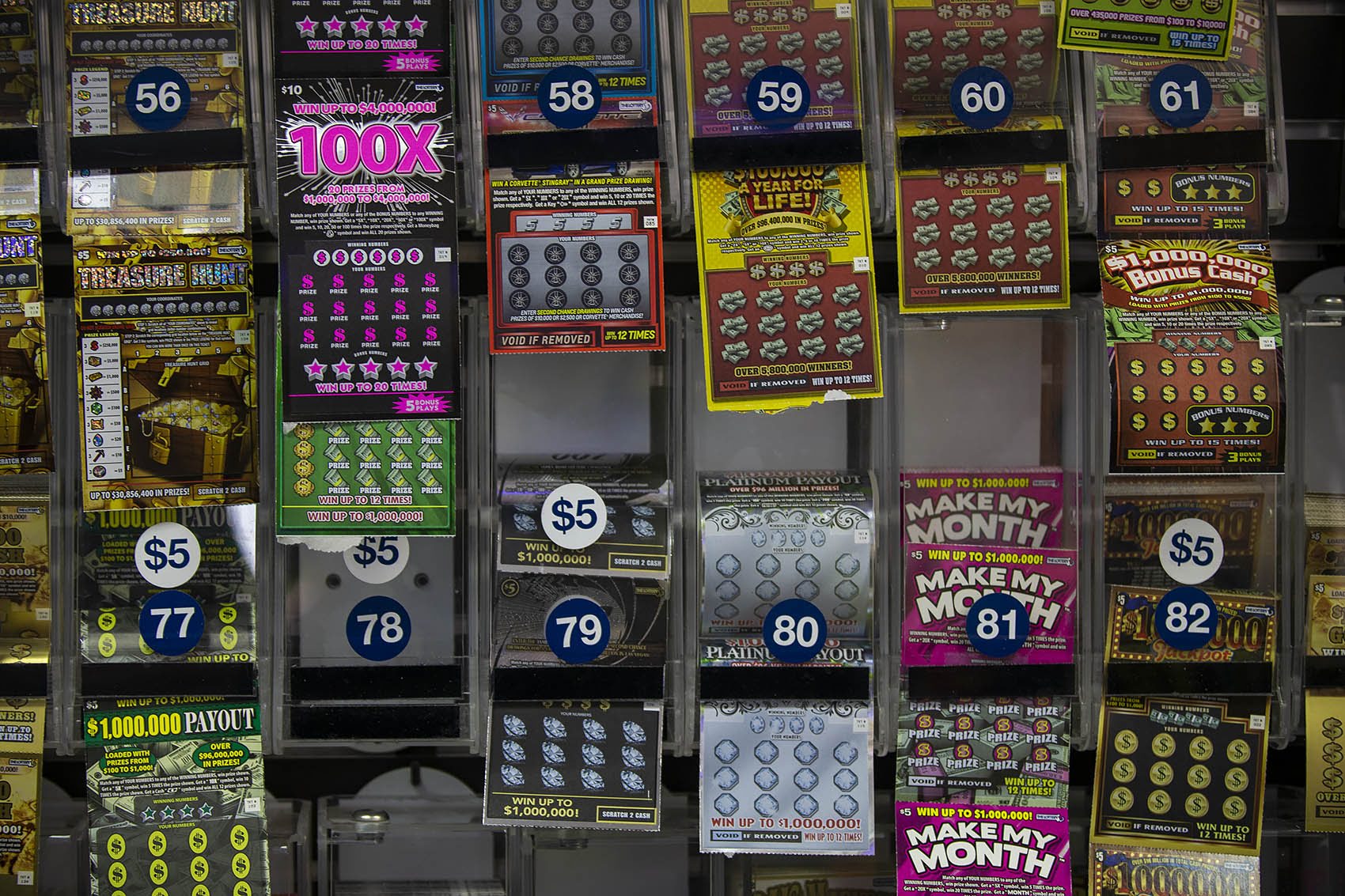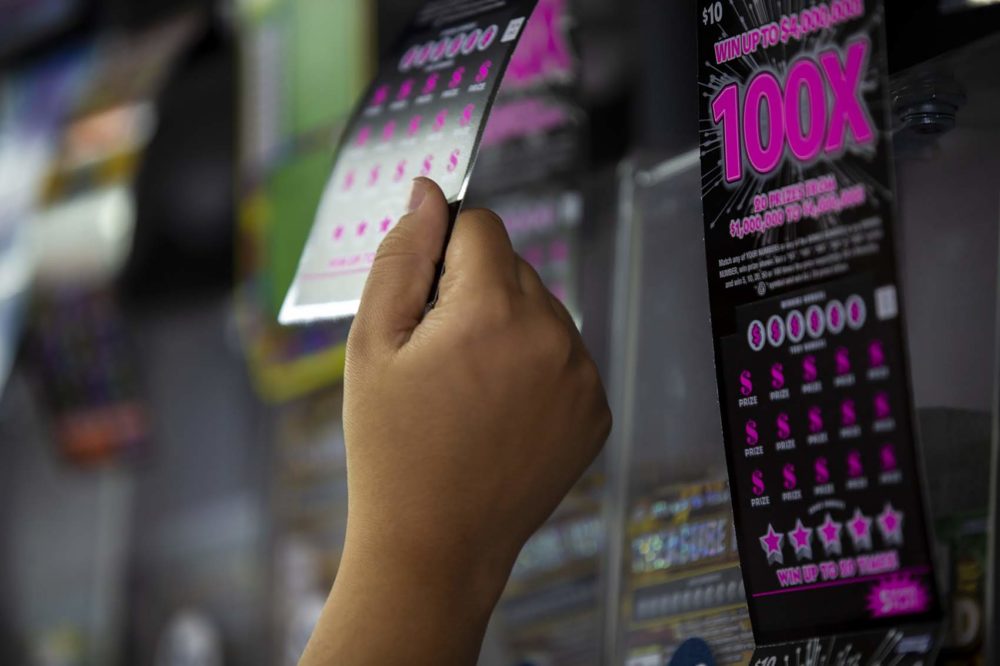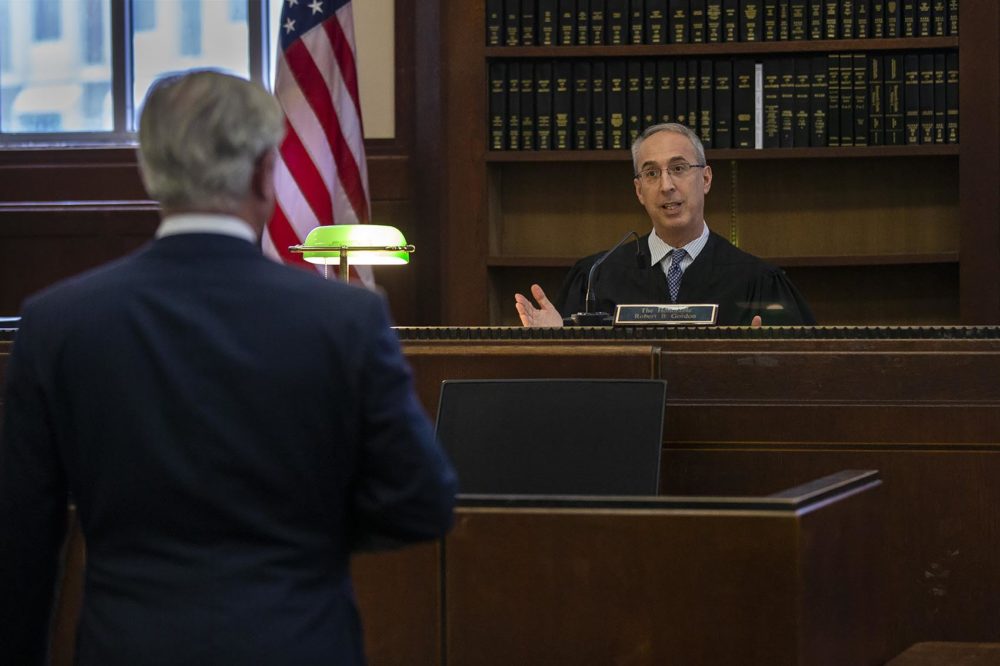Advertisement
The Jaafar Family Kept Winning, Despite Mass. Rule. Now, They're Suing The Lottery
Resume
It's been another banner year for the Jaafar family.
Ali Jaafar and his two sons have combined to cash $5.8 million in lottery tickets in 2019 — mostly on tickets worth just $2,000 — a WBUR data analysis has found.
Every year since 2014, Ali Jaafar has been the winningest person playing the Massachusetts State Lottery.
But payouts to most Jaafar family members have now been temporarily halted under a state policy, introduced in late July 2018, that sought to crack down on people who win with a frequency the lottery views as "factually or statistically improbable."
So far, though, the agency has only targeted the five most profitable of dozens of so-called “frequent cashers,” and the Jaafars are now suing the lottery, challenging whether the state has the authority to withhold the family’s prize claims. Their lawsuit marks the first legal battle over the policy.
Despite Rule, Another Big Year For Frequent Winners
The policy -- unveiled after years of questions about frequent winners — allows the lottery to stop payouts for three months to anyone who claims 20 or more prizes valued at $1,000 or more in any 365-day stretch. The penalties increase in length with each violation of the policy.
But since the policy began on July 27, 2018, the Jaafars have won more than 3,000 times for $9.5 million. The Jaafars, Frank Obey — a Lynn man who won more than 920 times for $4.2 million — and one other top player, Boston's Nghia Van Nguyen, are so far the only ones the lottery has gone after under the rule.
Around the rule’s one-year mark, records show the lottery officially froze payouts to the Jaafar sons, as well as Obey and Nguyen, for 90 days. The lottery still has not barred Ali Jaafar, of Watertown, from cashing out.
"At some point in that timeline [of issuing the suspensions], it became somewhat obvious to me that a lawsuit was going to be filed, and I just made the decision to wait on that last suspension [of Ali Jaafar]," Lottery Director Michael Sweeney explained in a phone interview Monday afternoon.
The millions in winnings since the policy's implementation, as well as the fact the lottery has so far targeted 3% of frequent winners, raise questions about the enforcement of the rule.
"The policy absolutely is being applied equally. What we're doing is applying the policy first and foremost to the individuals on paper who appear to be the bigger offenders," Sweeney said. "... We're going after the heavy-hitters with the resources we have."
But Sweeney said that while the lottery has focused on top winners, it is still looking to enforce its rule for all frequent cashers.
"If you're in violation of this policy, you should have the expectation that you will have a hearing and a potential suspension regarding this matter," he added.
Frequent winners as a group did very well for themselves, taking home about $92.5 million during the first year of the policy. In total, 169 individual frequent cashers together netted $41.3 million during the period, according to WBUR's analysis. (The other roughly $50 million accounts for companies that cash lottery tickets.)
Twenty-two of the individuals — or 13% — cashed in more than 50 prizes in that period.
Ali Jaafar was the only person who claimed more than 1,000 prizes. The Jaafars, Obey and Nguyen were the only people who cashed in at least $1 million worth of prizes.
Though the lottery has so far only sought to pause payouts to those five top winners, it did warn a total of 54 people of its intentions to crack down. The August 2018 letters apparently weren’t much of a deterrent. More than 51% of the letter-receivers continued to cash tickets at a rate that would make them frequent winners in the 11 months between Labor Day of 2018 and the policy’s one-year mark.
The lottery never sent any other warnings to frequent cashers about the policy. Eight months passed before the lottery told the Jaafars, Obey and Nguyen their prizes would likely be suspended.
What Does Enforcement Look Like Then?
When the lottery decides it wants to suspend a player’s payouts, the player can request a hearing to defend their wins. They can keep getting prizes until a post-hearing judgment is made.
In the hearing transcripts below obtained by WBUR, lottery officials provided the players’ wins six months into the policy as evidence:
- Ali Jaafar won 651 prizes worth $1,240,905.50
- Obey won 334 prizes worth $690,738.50
- Mohamed Jaafar won 391 worth $532,222.25
- Yousef Jaafar won 295 worth $416,219.00
- Nguyen won 163 worth $280,741.00
In these hearings, the lottery each time brought forth two witnesses: Maureen McHugh, a lottery compliance employee, and Paul Mandeville, assistant executive director of information technology for the lottery.
McHugh stated at each hearing that the tickets cashed by the men were often bought “at all sorts of locations across the commonwealth.”
“It is not … a normal pattern for someone that is just out playing lottery, most people play around their own home or in the same locations,” she said at Ali Jaafar’s hearing.
And in each hearing, Mandeville explained in detail how the agency concluded the players’ winnings were “statistically improbable.” His math was based on the odds of winning individual games.
It’s important to note that it’s unclear if any laws were broken by the Jaafars, Obey or Nguyen. The focus in these hearings was on whether they violated the lottery’s policy — not a law.
At his May 2 hearing, Obey didn’t say he possessed odds-defying luck.
Instead, he offered another explanation. He told the lottery his line of work is akin to being a shepherd for the lottery, saying he spends nearly every day cashing tickets for winners who do not want to go get the prizes themselves. In return, he gets a cut. It’s a scheme that in the past has been called “10% cashing.”
“Most of the people that cash a $1,000 ticket, that money is gone within a few days. All right? Because they are players. I cash. They are big players. I didn't create the problem. Right here, created the problem,” Obey told lottery officials, the transcript shows. “But, um, I feel like I work for the lottery, you know? I'm helping them out. There is no office up in the North Shore area. And a lot of people don't have transportation, or they don't want to go there. Or they don't want to take time off."

In Massachusetts, any winning ticket valued at more than $600 must be cashed at a lottery office. Obey repeatedly said he knew most of the people he cashed for, but that he did not ask people why they wanted him to cash their tickets.
“How am I supposed to know what anybody else['s] business is? And I don't really want to know what anybody's business is. They want to play,” Obey said. “One wife is playing, the husband don't know about it. Husband is playing, the wife don't know about it. Big time. It goes on, you know. It goes on. You may not see it, but I see it.”
Nguyen told lottery hearing officials through a translator, as his primary language is Vietnamese, that while he purchased a lot of the winning tickets himself, friends would sometimes buy them for him — “for luck.”
Obey said he won many of the prizes on his own, too, including a couple of big ones. He said he couldn’t remember exactly how many of the tickets he cashed were his originally. His lawyer requested another hearing before the lottery commission, which was also scheduled for Tuesday.
“How am I supposed to know what anybody else['s] business is? And I don't really want to know what anybody's business is. They want to play.
Frank Obey
The Octogenarian Ex-Casher And Oversight
Legal arguments were not a problem for the government in its successful prosecution of Clarance Jones, who was once the state’s top lottery casher before Ali Jaafar. Jones is the most high-profile lottery winner to ever be convicted of crimes linked to frequent cashing in Massachusetts.
In May, the 80-year-old Lynn man admitted to purchasing millions of dollars’ worth of winning tickets between 2011 and 2017 for a discount to help the ticket holders avoid paying taxes. He pleaded guilty to tax fraud charges connected to his own “10-percenting” scheme.
Jones said he was a professional gambler and would write off alleged losses to offset his owed taxes. He was sentenced in August to two months in prison and two years of supervised release.
Long before Jones was caught, however, the lottery saw his eye-raising cashing habits. And while the agency has touted Jones’ arrest, frequent cashing has only grown.
The number of frequent winners has increased each year since 2011, when 78 frequent cashers netted $48.5 million. The total amount of winnings cashed by frequent winners during the policy's first year is also far higher than the annual totals for each year between 2011 to 2017.
Concerns about frequent winning were first raised in a 1999 state audit. Current state Auditor Suzanne Bump's office last investigated the lottery in 2014, and is overdue by two years for another. The office was set to investigate earlier this year, but the lottery asked the auditor to delay her probe, citing updates to its systems and process changes.
Jaafars In Court

The questions of the family's attorney, Kevin Considine, throughout the hearings have focused on whether the lottery has the legal right to enforce its policy, conduct its hearings, or keep his clients’ money.
He ultimately accuses the lottery of illegal action, arguing in documents sent to the lottery that “the Lottery has taken it upon itself to create this new regulation as an overly broad, and unlawful, tool of enforcement.”
Sweeney, the lottery director, said he always expected the policy to face legal challenges, but he feels confident about the lottery's legal basis for the rule. He cited the lottery's obligation to help ensure the collection of child support and back taxes as being part of that.
"If a court or any other legal body rules that there are improvements that are needed [to the policy], we'll simply go and make the improvements and come right back at it," he said.
At a hearing Tuesday in Suffolk Superior Court in Boston, Judge Robert Gordon said he would decide later whether the Jaafar sons can continue to collect prizes while the civil case plays out. Ali Jaafar, meanwhile, is again still free to cash winning tickets.
Clarification: This post has been updated to clarify that frequent winners since the policy's enactment include companies that cash lottery tickets. It was also updated following the hearing for the lottery in Suffolk Superior Court Tuesday.
Lisa Creamer is a digital editor for WBUR. Jeff Kelly Lowenstein is an investigative journalist who teaches at Grand Valley State University. He is the project coordinator for the Gaming the Lottery project, an international collaboration involving student and professional journalists from Africa, Europe, Latin America and the United States.
This article was originally published on September 30, 2019.
This segment aired on October 2, 2019.